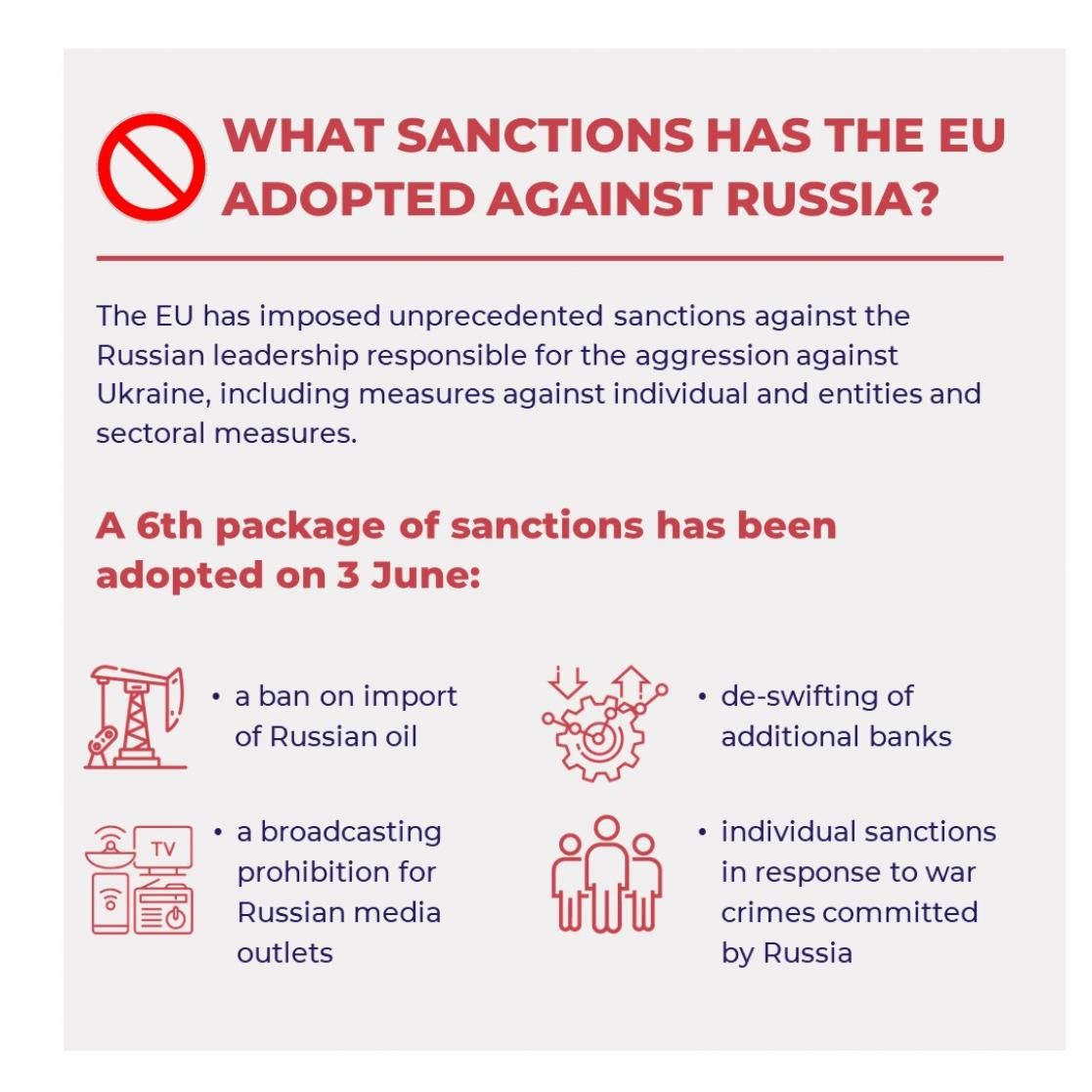
EU Finalizes 17th Sanctions Package Against Russia Amid Ongoing Conflict
The latest sanctions aim to increase pressure on Russia following its continued military actions in Ukraine.
Brussels – The ambassadors of the 27 European Union member states have finalized the 17th package of sanctions against Russia, scheduled for adoption by the Foreign Affairs Council in the coming week.
This decision comes as a response to President Vladimir Putin's rejection of a ceasefire proposal put forth by Ukrainian President Volodymyr Zelensky and his Western allies.
The confirmation of this sanctions package was announced by diplomatic sources on May 14, with the preparatory body Coreper approving the measures.
The European Executive initially presented these sanctions on May 7, with minor modifications introduced by the Polish Council presidency in recent days.
The Foreign Ministers of the 27 member states are slated to provide formal approval on May 20.
The announcement of this package comes exactly a month after its initial presentation by EU High Representative for Foreign Affairs Kaja Kallas.
Kallas has articulated a strong stance on tightening the sanctions regime against Russia, emphasizing that sanctions are crucial to diminishing the Kremlin's military capabilities.
She stated, 'Sanctions drain Russia's war chest,' upon the approval of the Coreper.
The latest sanctions primarily extend existing measures and add to the growing list of individuals and entities targeted.
Nearly 200 new ships associated with what the EU designates as Russia's 'ghost fleet,' which allows the country to circumvent the international oil embargo, are included in the sanctions.
This brings the total number of sanctioned ghost vessels to over 350.
Additionally, the new package targets 75 individuals and companies linked to Russia's military-industrial complex, along with approximately 30 firms accused of supplying dual-use goods and technologies to Moscow.
It also enforces a ban on exporting specific chemicals that are utilized in missile production to Russia.
However, the current sanctions did not encompass stricter measures advocated by some member states, particularly those in the Baltic and Scandinavian regions, who are urging more robust actions.
These nations are already considering an 18th sanctions package, indicating preparation for further restrictive measures in the future, which may involve broader economic sectors such as the Russian energy giant Rosatom and imports of liquefied natural gas (LNG).
The 27 member states regard this round of sanctions as a means to pressure President Putin to engage in negotiations for a ceasefire in Ukraine.
Recently, Putin dismissed an ultimatum from Kyiv's Western allies for an unconditional 30-day cessation of hostilities, demonstrating a significant east-west divide on the continued conflict.
Supported by allies, including the United States, President Zelensky has scheduled a face-to-face meeting with President Putin in Istanbul to discuss a truce, marking the potential for the first round of direct talks between Ukraine and Russia since March 2022. The meeting is expected to be facilitated by Turkish President Recep Tayyip Erdoğan, who previously acted as a mediator in the ongoing conflict.
This decision comes as a response to President Vladimir Putin's rejection of a ceasefire proposal put forth by Ukrainian President Volodymyr Zelensky and his Western allies.
The confirmation of this sanctions package was announced by diplomatic sources on May 14, with the preparatory body Coreper approving the measures.
The European Executive initially presented these sanctions on May 7, with minor modifications introduced by the Polish Council presidency in recent days.
The Foreign Ministers of the 27 member states are slated to provide formal approval on May 20.
The announcement of this package comes exactly a month after its initial presentation by EU High Representative for Foreign Affairs Kaja Kallas.
Kallas has articulated a strong stance on tightening the sanctions regime against Russia, emphasizing that sanctions are crucial to diminishing the Kremlin's military capabilities.
She stated, 'Sanctions drain Russia's war chest,' upon the approval of the Coreper.
The latest sanctions primarily extend existing measures and add to the growing list of individuals and entities targeted.
Nearly 200 new ships associated with what the EU designates as Russia's 'ghost fleet,' which allows the country to circumvent the international oil embargo, are included in the sanctions.
This brings the total number of sanctioned ghost vessels to over 350.
Additionally, the new package targets 75 individuals and companies linked to Russia's military-industrial complex, along with approximately 30 firms accused of supplying dual-use goods and technologies to Moscow.
It also enforces a ban on exporting specific chemicals that are utilized in missile production to Russia.
However, the current sanctions did not encompass stricter measures advocated by some member states, particularly those in the Baltic and Scandinavian regions, who are urging more robust actions.
These nations are already considering an 18th sanctions package, indicating preparation for further restrictive measures in the future, which may involve broader economic sectors such as the Russian energy giant Rosatom and imports of liquefied natural gas (LNG).
The 27 member states regard this round of sanctions as a means to pressure President Putin to engage in negotiations for a ceasefire in Ukraine.
Recently, Putin dismissed an ultimatum from Kyiv's Western allies for an unconditional 30-day cessation of hostilities, demonstrating a significant east-west divide on the continued conflict.
Supported by allies, including the United States, President Zelensky has scheduled a face-to-face meeting with President Putin in Istanbul to discuss a truce, marking the potential for the first round of direct talks between Ukraine and Russia since March 2022. The meeting is expected to be facilitated by Turkish President Recep Tayyip Erdoğan, who previously acted as a mediator in the ongoing conflict.











